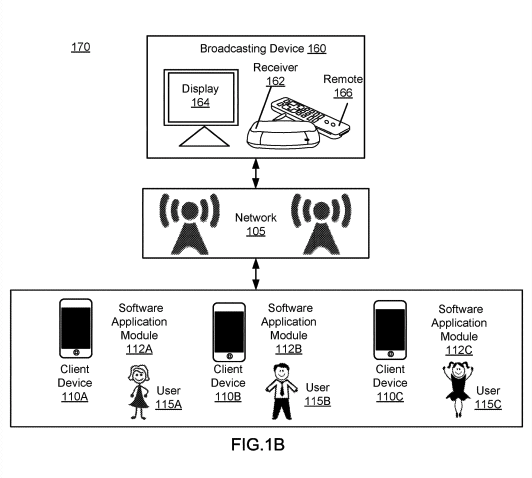Forward-looking: Facebook has spent years denying rumors that it surreptitiously records people's conversations for ad-targeting purposes using their smartphones' microphones. Yet a recently discovered patent application suggests such a thing could one day become a reality. Facebook, however, says it'll never happen.
First reported by Metro, the patent, which is titled Broadcast Content View Analysis Based On Ambient Audio Recording and was published on June 14 this year, describes how an "ambient audio fingerprint or signature" could be embedded in the audio of a TV ad or other content. The high-pitched "non-human hearable digital sound" would trigger a device such as a smartphone to start recording the surrounding "ambient audio."
This information would then be analyzed and stored so Facebook could determine what ads people watch on their "broadcasting device." This will give ad firms an idea of their audience size and whether viewers sat through an entire advertisement or switched it off. This in turn could allow Facebook to show ads on the social network that it thinks would appeal to specific users.
This does all sound very worrying for consumers. Facebook is under intense scrutiny right now for the way it handles users' data, and won't welcome suggestions that it plans to spy on people. But the company claims it never intends to use the technology described in the patent, which was first filed back in 2016.
"It is common practice to file patents to prevent aggression from other companies," said Facebook VP and Deputy General, Counsel Allen Lo. "Because of this, patents tend to focus on future-looking technology that is often speculative in nature and could be commercialized by other companies. The technology in this patent has not been included in any of our products, and never will be. As we've said before, we often seek patents for technology we never implement, and patent applications should not be taken as an indication of future product plans."
Despite Lo's words, there's no 100 percent guarantee some form of this technology won't one day become a reality. So don't be surprised if the ads on Facebook and Messenger start looking eerily familiar.

